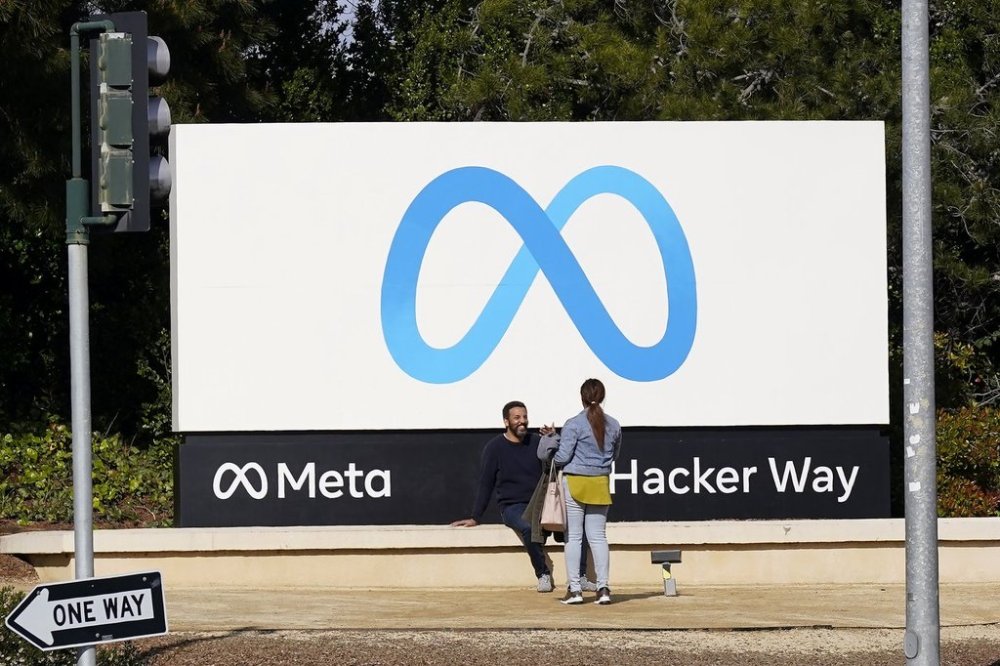Maryland tax on digital ads violated Big Tech’s free speech, judges say
Advertisement
Read this article for free:
or
Already have an account? Log in here »
To continue reading, please subscribe:
Monthly Digital Subscription
$0 for the first 4 weeks*
- Enjoy unlimited reading on winnipegfreepress.com
- Read the E-Edition, our digital replica newspaper
- Access News Break, our award-winning app
- Play interactive puzzles
*No charge for 4 weeks then price increases to the regular rate of $19.00 plus GST every four weeks. Offer available to new and qualified returning subscribers only. Cancel any time.
Monthly Digital Subscription
$4.75/week*
- Enjoy unlimited reading on winnipegfreepress.com
- Read the E-Edition, our digital replica newspaper
- Access News Break, our award-winning app
- Play interactive puzzles
*Billed as $19 plus GST every four weeks. Cancel any time.
To continue reading, please subscribe:
Add Free Press access to your Brandon Sun subscription for only an additional
$1 for the first 4 weeks*
*Your next subscription payment will increase by $1.00 and you will be charged $16.99 plus GST for four weeks. After four weeks, your payment will increase to $23.99 plus GST every four weeks.
Read unlimited articles for free today:
or
Already have an account? Log in here »
ANNAPOLIS, Md. (AP) — Maryland’s first-in-the-nation tax on digital advertising violated the Constitution, a federal appeals court says, because blocking Big Tech from telling customers about the tax violates the companies’ right to free speech.
Supporters say Maryland needed to overhaul its tax methods in response to significant changes in how businesses advertise. The tax focuses on large companies that make money advertising on the internet such as Meta, Google and Amazon, who say they’re being unfairly targeted.
The ongoing legal fight is being watched by other states that are considering taxes for online ads. Maryland estimated the tax could raise about $250 million a year to help pay for a sweeping K-12 education measure.

Maryland’s law says the companies must not only pay the tax, but avoid telling customers how it affects pricing, with no line items, surcharges or fees, said the appeals court Friday in siding with trade associations fighting the tax.
Judge Julius Richardson cited the Colonial-era Stamp Act, which helped spark the Revolutionary War, and wrote that “criticizing the government — for taxes or anything else — is important discourse in a democratic society.”
The plaintiffs contended Maryland lawmakers were trying to insulate themselves from criticism and political accountability by forbidding companies from explaining the tax to their customers.
“A state cannot duck criticism by silencing those affected by its tax,” the judge wrote.
The unanimous ruling by the 4th U.S. Circuit Court of Appeals reverses a decision by U.S. District Judge Lydia Kay Griggsby and sends the case back to her with instructions to consider an appropriate remedy in light of the panel’s decision.
Trade groups praised the decision.
“Maryland tried to prevent criticism of its tax scheme, and the Fourth Circuit recognized that tactic for what it was: censorship,” said Paul Taske, co-director of the NetChoice Litigation Center, said in a statement.
Maryland Comptroller Brooke Lierman, who is the defendant in the case, and the Maryland attorney general’s office, who is representing the state, declined to comment Monday.
The law has been challenged in multiple legal venues, including Maryland Tax Court, where the case is ongoing.
The law imposes a tax based on global annual gross revenues for companies that make more than $100 million globally.
Under the law, the tax rate is 2.5% for businesses making more than $100 million in global gross annual revenue; 5% for companies making $1 billion or more; 7.5% for companies making $5 billion or more and 10% for companies making $15 billion or more.
The Maryland General Assembly, which is controlled by Democrats, overrode a veto of the legislation in 2021 by then-Gov. Larry Hogan, a Republican.

